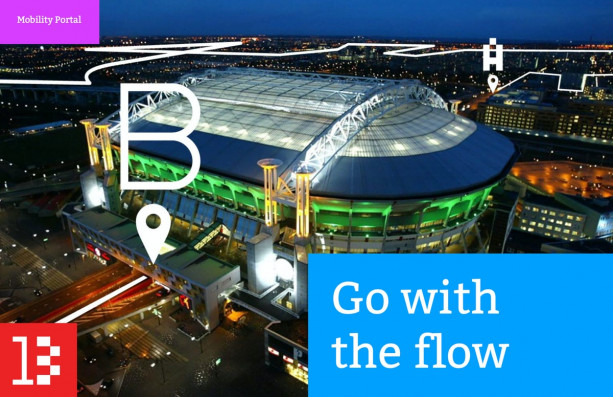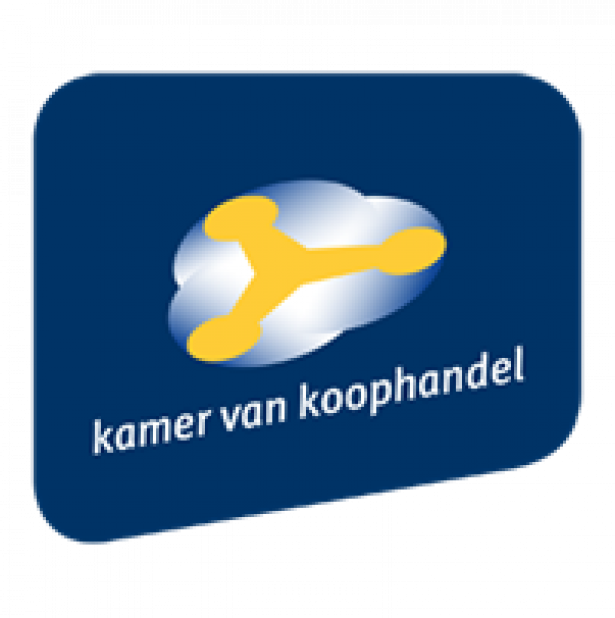Stay in the know on all smart updates of your favorite topics.
Floating Urban Development Challenge; Co-creating imaginable, workable and attractive scenarios
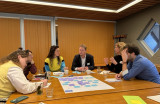
Due to lack of space and climate change, the future of living might need to partly move on to water areas. In our history of conquering the water, the Dutch have a head start in some of the challenges associated with living on- and with water. Researchers and designers are therefore imagining and conceptualizing floating urban development. However, to make it a truly realistic and imaginable future scenario, there are more hurdles to overcome. To realize floating neighborhoods, we’ll need to find solutions for more than only the technical aspects, like; financing, community support, ecological aspects, affordability and political support.
Overcoming these barriers will be difficult. We’re currently focusing on urgent (housing)crises and our collective belief on urban development is mainly focused on ‘family apartments on land’. This challenge revolves around creating imaginable and workable scenarios of urban development on water.
Mobility Challenge: How do we make Carbon-neutral mobility to large events the norm?

The climate is changing and Amsterdam is getting busier and busier. We are faced with the task of keeping the city, including Southeast, liveable, safe and accessible at the same time.Various events, concerts, sports competitions attract millions of visitors to Southeast every year. To bring all these visitors to the city in a more sustainable way, the municipality of Amsterdam, Johan Cruijff ArenA, Ajax, NS, GVB, Transdev, Transport Region Amsterdam and Amsterdam Smart City have joined forces. Their ambition is to make CO2 neutral travelling to and from large events the norm by the end of 2023.
Alternating travelbehaviour requires a diverse coalition
The car is currently still the most widely used means of transport in Southeast. The transition to sustainable mobility requires cooperation between (semi)public and private parties and the strengthening of sustainable alternatives to the private car. While reducing car- and parking accessibility, and placing bycicle parking options lays within the power of the municipality, the public transport providers posess all travel data and have the power to expand their transportcapacity. Moreover, to convince the supporters and fans to change their behaviour, you need the direct communication power from Ajax (Football Club) and the Johan Cruijff ArenA. Hence, you could say the challenge within the challenge is to find new forms of collaboration, data sharing, and fine-tuning the alignment of measures.
Short and long-term measures
The coalition of partners have developed an action plan and analysed crowd-and travel behaviour. During 2023, these findings initiated the shaping of first measures to influence the mobility choices of visitors. During the first pilot event at the end of May, bike parking facilities will be expanded and group transportation will be aranged for those living in so called 'public transport desserts'.
When speaking of long(er)-term measures, one could think of time-adjusted public transport supply, personal (digital) travel advice, and campaigns through Ajax and its supportersbase to raise awareness and appreciation of car-alternatives.
Operationeel Mobiliteitscentrum (OMC)

In de toekomst zullen we ons anders door de stad moeten bewegen. Vanwege de toenemende drukte en de verduurzamingsopgave zullen we minder afhankelijk moeten worden van onze privéauto. Dit betekent meer fietsen, meer met het openbaar vervoer en meer gebruik van nieuwe vormen van vervoer zoals deelmobiliteit. Om deze mobiliteitstransitie te kunnen faciliteren moet de gemeente ook haar rol als wegbeheerder herzien. De huidige verkeerscentrale is namelijk nog vooral gericht op klassiek wegverkeer en kijkt dus niet naar de verschillende mobiliteitsstromen. Daarom testen we in Amsterdam Zuidoost met een nieuwe mobiliteitscentrale die naar alle verschillende mobiliteitsstromen kijkt.
Wicked Problems
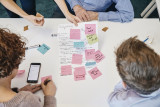
Te wicked? Niet voor ons.
Wij werken allemaal aan urgente, complexe, maatschappelijke uitdagingen. Issues die schier onoplosbaar lijken, van dilemma’s en paradoxen omgeven, nog niet duidelijk hoe het moet. Wel is duidelijk dát het moet, dat we elkaar nodig
hebben en dat we er NU aan moeten beginnen. Om met de woorden van Jan Rotmans te spreken; we leven niet in een tijdperk van verandering maar in een verandering van tijdperk. En hier hoort een nieuwe gereedschapskist bij.
En of je nou aan energietransitie werkt, andere mobiliteitssystemen, creëren van waterstofhubs, peer to peer autodeelsystemen, het maakt niet uit, we zien dat al deze opgaven op enig moment tegen gelijksoortige barrières aanlopen. Op samenwerking, financiering, privacy, onvoldoende aansluiting op de maatschappij, om maar een paar voorbeelden te noemen.
Unieke samenwerking
Als Amsterdam Smart City netwerk willen en kunnen we deze opgaven niet laten liggen. Door het bundelen van onze kennis en expertise kunnen we als netwerk iets unieks bieden en de wil en durf tonen om deze barrières te doorbreken. De betrokken partners die dit uitdenken en begeleiden zijn RHDHV, Kennisland, Drift, NEMO, Arcadis, Alliander, HvA en Metabolic. Zij bundelen hun expertise en ervaring om de echte vragen boven tafel te krijgen, tot nieuwe manieren van samenwerken te komen en barrières te doorbreken. We richten ons met name op de start van de samenwerking. Gezamenlijk ontwikkelen we een ‘wicked problem aanpak’. Op een nieuwe manier, lerend door te doen, exploratief.
Waar moet je aan denken?
Wat is eigenlijk het echte probleem? Wiens probleem is dit? Hoe kijken anderen er tegenaan? Welke andere partijen lijken nodig? Hoe vind je ze? Hoe ga je om met eigenaarschap en botsende frames? Hoe zorg je dat je al in
een vroeg stadium de maatschappij (bewoners, ondernemers, werknemers, etc) betrekt en hun ervaringen in het project trekt? Het wicked problem team zet nieuwe methoden in voor het beantwoorden van deze vragen. En het creëren van de benodigde commitment om het vraagstuk aan te pakken. Niets staat van te voren vast, want we passen ons aan aan wat we tegenkomen. Met elkaar ontwikkelen we een nieuwe aanpak om de barrières te doorbreken.
EC-Link Platform

You would like to connect with Urban Environmental Sustainability practitioners and researchers in China and exchange your approaches to green transport, clean energy, compact urban development, water and solid waste management, green buildings and municipal finance? Then sign up to the EC-Link platform! The platform links Eco Cities across Europe and China, offering inspiring examples from both sides of Eurasia and enabling direct contacts to the innovators. With the help of an integrated translation tool, posts can be translated into Chinese and English with just one click. Use of the platform is free of charge: http://eclink.org/bbs/#/?lang=en
A description of how the platform works can be downloaded here: http://eclink.org/ec_platform/upload/document/EC-Link_Users'%20Guide-EN.pdf
enerGQmobility

Founded in 2014, enerGQmobility develops and markets low cost self-learning energy management systems to the full range of organizations from households to multinationals in all sectors of the market. Our aim is to contribute to “stop the global warming” within 5 years by licensing the technology to partners. It uses the low cost and energy saving technology to assess the performance and provide improvements in the areas of aviation, maritime, rail, and road transport.
The self-learning energy management systems of enerGQmobility make use of AI-techniques and visualize excess energy so that it can be reduced easily.
Program Smart Mobility Amsterdam 2019 - 2025
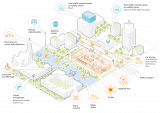
An accessible, liveable and less polluted city: this is what we’d like to achieve for residents, visitors and businesses in Amsterdam today and for future generations. Smarter and cleaner mobility can help us realise these aims. As a city, we want to offer Amsterdammers, commuters and visitors alternatives to the present forms of mobility, providing a door-to-door solution and contributing to our aims. This includes shared electric transport, from cars to bikes, in ‘Neighbourhood eHubs’ (eBuurthubs) established in cooperation with local residents. That way, we can use clean modes of transport and create more space in the city by sharing. We can then use this extra space to improve liveability.
More info and link to the program via www.amsterdam.nl/smartmobility
Check the report:
https://www.amsterdam.nl/wonen-leefomgeving/innovatie/smart-mobility
Actions
To achieve the ambitions, we will start working with two program lines:
1. Data and digitization
This program line helps the municipal organization digital tools and skills to ensure sufficient control in the future be able to rely on mobility in the city and around
improve quality in public spaces. We are working towards a mobility center of the
future. For this we will use the take the following steps:
• A shared basis: building a strong one data position
• A level playing field: frameworks
• Learning by doing: from traffic management to mobility management
• Ready for the future: aware of the consequences of digitization of mobility
2. Innovative mobility solutions
In this program we work together on concrete smart and clean alternatives to transport, so that Amsterdammers and visitors to the city are less dependent on their own car. We do this by setting up projects in certain urban areas and for specific target groups. We also focus on smart city logistics and we explore the possibilities of transport by water and air. Special attention is given to vulnerable groups and Amsterdam residents with a small grant. We improve the range of new affordable mobility concepts and increase demand, we grow into smart mobility city number 1 with a better and accessible mobility system for everyone. For this we will include the following in this program:
• Smart organization of mobility in the city: travelers are working on alternatives to possessing cars and initiating behavioral change.
• Smart fitting and efficient deployment of new mobility solutions: creating space for new concepts in the city and scaling up
• Anticipate on technological innovations: insights into new opportunities and collaborations. The report contains an overview of the various projects started in the previous program that are still running and newly started activities.
FABULOS
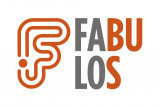
FABULOS (Future Automated Bus Urban Level Operation System) is a European research and development project to establish and deliver a systemic proof-of-concept for automated last mile public transport as part of the existing transport system of urban areas, based on the use of self-driving minibuses. The FABULOS project has received funding from the European Union’s Horizon 2020 research and innovation programme and runs from 1 January 2018 until 31 December 2020. The FABULOS project has partners in Estonia, Finland, Greece, the Netherlands, Norway and Portugal. The six procuring partners use Pre-Commercial Procurement as a tool to co-create an innovative solution together with multiple companies. Contracts have been signed in December 2018 with 5 consortia. The first Phase (feasibility study) starts in January 2019. Actual piloting of fleets of robot buses takes place in all 6 partner cities from Spring 2002 onwards.
Most recent press release: https://fabulos.eu/five-consortia-awarded-contracts-in-fabulos-pre-commercial-procurement/
The FABULOS consortium has finalised the evaluation of the tenders in December 2018 and has awarded five consortia with contracts. The aim of these contracts is to facilitate procurement of R&D work to develop systems capable of operating fleets of automated minibuses. As a first step towards this goal, each consortium will conduct a feasibility study of proposed solutions and technologies.
After the closing of the FABULOS request for tenders on 31 October 2018, the tenders were assessed by the Technical Evaluation Committee. In addition to commercial feasibility and project management, nine functional criteria and three non-functional criteria were used. The functional criteria range from fleet management and remote operation and all the way to requirements for vehicle capabilities in mixed traffic. Societal and legal aspects form elements of the non-functional criteria. The fleet is expected to drive in mixed traffic, at urban speeds, in nearly in all weather conditions and without a conductor on board.
“We were positively surprised by the high quality of tenders received and were pleased to discover so many exceptional solutions to the FABULOS challenge. It will be very exciting to see these proposed solutions become a reality by the end of 2020,” summarises Technical Chair of the Evaluation Committee Oscar Nissin, from Metropolia University of Applied Sciences.
Five European consortia have succeeded in the first stage of the competition. In total, 16 companies from six European countries formed consortia as follows:
- The FVF Consortium consisting of three Finnish partners: Fortum Power and Heat Oy, Fleetonomy.ai Oy and VTT Technical Research Centre of Finland.
- The Kompai-Actia Consortium consisting of two French companies: Kompaï Robotics and Actia Automobile.
- The Mobile Civitatem Consortium consisting of four partners from Estonia: Modern Mobility Oü, Tallinn University of Technology, Silberauto Eesti AS and Ecofleet Eesti Oü. The fifth member of the consortium is the Danish company Autonomous Mobility A/S.
- The Saga Consortium consisting of four Norwegian partners: Halogen AS, Forus PRT AS, Spare Labs Inc. and Ramboll Management Consulting AS.
- The Sensible 4 – Shotl Consortium consisting of two partners: Sensible 4 from Finland and Shotl from Spain.
The total FABULOS procurement budget is around 5,500,000 euros (incl. VAT). The maximum budget for individual suppliers involved in all three phases is over 1,000,000 euros (incl. VAT).
Reisproef Amsterdam

Ga het avontuur aan!
We dagen Amsterdammers uit om hun auto en parkeervergunning voor twee maanden in te leveren en te ervaren hoe anders reizen bevalt. In ruil daarvoor krijgen deelnemers een bedrag aan reistegoed bij alle aangesloten vervoerders.
Doe mee met een proef en ruil uw auto twee maanden in voor ander vervoer. Samen houden we de stad bereikbaar en leefbaar.
Meld je hier aan
<https://www.amsterdam.nl/parkeren-verkeer/parkeervergunning/doe-mee-reis>
Lees meer over het smart mobility programma van Amsterdam
<https://www.amsterdam.nl/wonen-leefomgeving/amsterdam-innovatie/smart-mobility/>
Lees hier meer over een eerdere pilot rondom de Zuidas
<https://amsterdamsmartcity.com/projects/maas-in-the-amsterdam-business-district>
Informatie en vragen over de proef
Van welke vervoerders kan ik gebruik maken?
- Openbaar vervoer op basis van de OV-chipkaart
- Taxi: TCA, Uber
- Deelauto: Car2Go, Greenwheels, mywheels
- Huurauto: Tripmanager
- Deelfiets: Urbee
- Scooter: Felyx
- Ridesharing: Viavan
Deze lijst kan nog uitgebreid worden.
Wanneer start de periode van twee maanden? Kan ik zelf kiezen welke maanden ik mee wil doen?
Binnen de looptijd van het experiment bepaalt u zelf de maanden van deelname. Er zijn wel vaste instapmomenten in verband met het inleveren van uw auto.
Waar parkeer ik mijn auto tijdens de proef?
Gedurende de twee maanden van de proef parkeert u uw auto in een gemeentelijke garage. Wij maken de locatie na inschrijving aan de deelnemers bekend.
Moet ik betalen voor mijn vergunning terwijl ik hem niet gebruik?
In de periode dat u meedoet aan de proef levert u uw auto in en kunt u geen gebruik maken van uw parkeervergunning. De kosten van de parkeervergunning in de periode van deelname krijgt u vergoed als aanvulling op uw reiscredits.
Kan ik ook meedoen als ik geen auto heb, of geen parkeervergunning maar wel een auto?
Het experiment is alleen toegankelijk voor mensen in het bezit van een auto + parkeervergunning. Het experiment maakt onderdeel uit van een groter project om Amsterdam autoluw(er) te maken en om het aanbod aan alternatieven voor de auto verder te ontwikkelen.
Kan ik tussendoor mijn auto gebruiken?
Het is niet mogelijk om uw auto tussendoor te gebruiken. Is er sprake van nood dan bekijkt het projectteam per geval of u de auto terug kunt krijgen.
The Parkshuttle
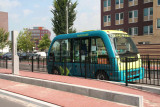
The ParkShuttle system is unique in the world in that it is the only automated system operating at grade, featuring (5) at grade intersections with other traffic, and is truly automated (no safety driver or steward)
Zuidasdok

Amsterdam's business district 'Zuidas' gets a big overhaul the next couple of years.
Action Program Smart Mobility 2016-2018- City of Amsterdam
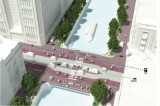
Improve the safety, accessibility, air quality, quality of life, and attractiveness of Amsterdam.
Check the Action Program Smart Mobility in English (link)
Check the Action Program Smart Mobility in Dutch (link)
Mainport Innovation Fund
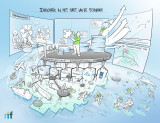
Venture Capital
MIF II was founded in 2015 by Schiphol, KLM, TU Delft, NS and Port of Amsterdam, together with NBI Investors, the manager of the fund. We help entrepreneurs accelerate by combining VC funding with the expertise and global network of our partners, who can also act as pilot partner or launching customer.
MIF II invests in innovative technology companies that are gaining traction and are looking for funding, expertise and network to speed up their growth. MIF II aims to acquire a substantial minority interest in its portfolio companies. Initial ticket sizes range from EUR 200.000 to EUR 1.000.000. MIF II is in the position to lead or participate in follow on rounds, up to total commitments of EUR 3.000.000 and over.
Stay up to date
Get notified about new updates, opportunities or events that match your interests.

